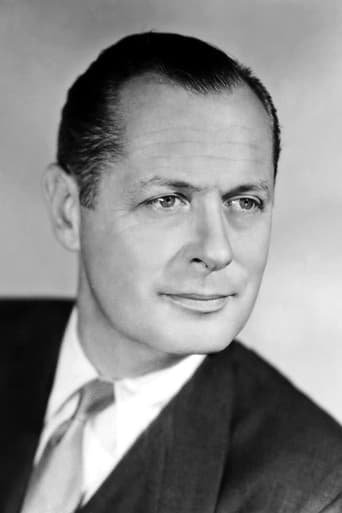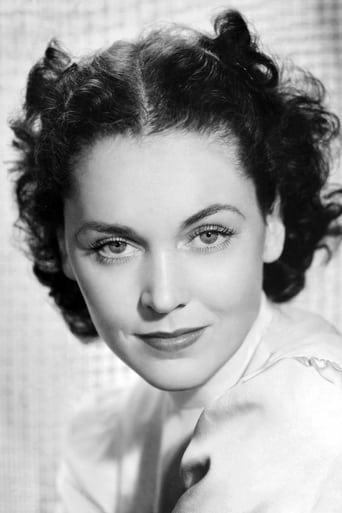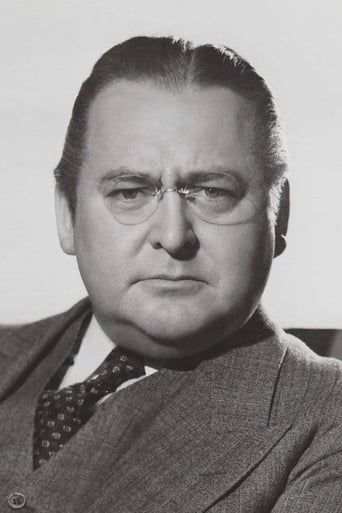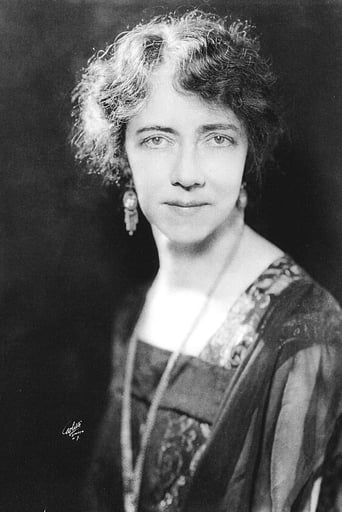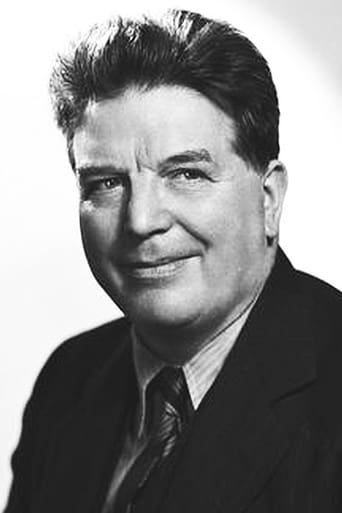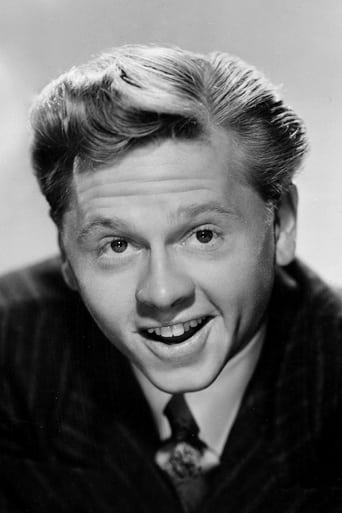Protraph
Lack of good storyline.
InformationRap
This is one of the few movies I've ever seen where the whole audience broke into spontaneous, loud applause a third of the way in.
Stephan Hammond
It is an exhilarating, distressing, funny and profound film, with one of the more memorable film scores in years,
Logan
By the time the dramatic fireworks start popping off, each one feels earned.
bkoganbing
Robert Montgomery stars in Hide-Out playing a dapper hood, front man for protection racketeer C. Henry Gordon. He doesn't do the rough stuff, Montgomery is the velvet glove and others provide the muscle.Police lieutenant Edward Arnold has been trying to nail Montgomery for years and a complaint has Gordon ordering Montgomery out into the country. With a police bullet in him Montgomery does wind up on the Miller farm upstate where they nurse him back to health.Montgomery who got that police bullet because he made an unscheduled stop to pick up one of his bimbos, falls for country girl Maureen O'Sullivan. She's certainly the farmer's daughter in a part normally reserved for Janet Gaynor at Fox. The rest of her family are parents Whitford Kane and Elizabeth Patterson and kid brother Mickey Rooney.I don't think I have to tell you too much more. Montgomery does well as the slowly reforming hood and he gets good support from the rest of the cast. Note down the list playing club owners and protection racket victims Henry Armetta, Herman Bing, and Douglass Dumbrille.This one's a good comedy/drama, comedy provided by Montgomery's attempts to adapt to country living.
chelsea_corazon
Good acting by Robert Montgomery,-- usually in upper-class boyfriend or husband leads in the '30s --- here having great fun as a young gangster-impresario, hiding out from the law in the home of innocent country farmers who don't suspect a thing. Montgomery has good chemistry with Maureen O'Sullivan, very natural and lovely as the farmer's daughter. Mickey Rooney is fun as the mischievous little brother with a hutch full of pet rabbits and a slingshot. Rooney shows off the talent for crying on cue that became one of his acting trademarks, and easily passes for no more than 11, though IMDb confirms he was 14 at the time. Tidy script combining a budding romance, gentle humor, and a look at an earlier era that seems slightly over-nostalgic from the perspective of 2016. This soft-focus is well offset by sharp support from Edward Arnold and Edward Brophy as two tough city cops. I think this could be enjoyed by anyone with an interest in history. "The Grapes of Wrath" it's not, yet the small farm family and their home are depicted honestly and without pretension. Children as young as 4 or 5 might enjoy seeing all the different farm animals who are (mostly) treated as loved pets.
aimless-46
"Sweet" is not a word I've ever used to describe a film, mostly because the films that might merit the word are invariably too sappy to qualify. But "Hide-Out" pulls it off and truly deserves that description. Much like "Bad Bascomb" (1946) and "Angel and the Badman" (1947) this is the story of an incorrigible criminal who is reformed because of his accidental association with good people. In "Hide-out" they are not reformers and there is no deliberate effort to reform; the character change comes because the positive examples cause him to adopt their values and belief system.Robert Montgomery plays Lucky Wilson, a charming Broadway playboy who is part of a protection racket specializing in nightclubs. His boss gets a percentage of each club's profits and Lucky insures the payoff is correct by estimating each club's business from their napkin usage (a convenient procedure because they control the laundry the clubs use). The opening sequence is exceptionally well staged, with Lucky's insatiable appetite for women revealed through a montage of blonde conquests; in the opening minutes he goes from a girlfriend's maid, to the girlfriend, to another girlfriend waiting for him in a car, to a new conquest at the night club he visits. During the brief intervals between conquests he finds time to leer and flirt with every pretty girl who crosses his path. All these girls are blonds with lots of makeup and with elaborate hairstyles. Their appearances are meant to contrast with the natural appearance of Pauline Miller (Margaret O'Sullivan), the girl with whom he eventually falls in love."Hide-Out" is one of those films where the casting is perfect, as you cannot imagine anyone but Montgomery and O'Sullivan being able to pull this out without appearing completely silly. They are nicely assisted by Elizabeth Patterson (as Pauline's mother) and by a very young Mickey Rooney (as Pauline's younger brother Willie). The standing gag is Willie's frustrated attempts to get the family to call him Bill. His scenes with Montgomery are especially good and it is interesting how much natural acting talent he exhibits this early in his career. They go out on a standing gag about the reproductive abilities of the rabbits he has been raising.A big reason why the film works is the attention paid to the details,. A second viewing will reveal many things you do not even notice the first time around, like Montgomery's continuing discomfort with "nature" when he brushes a rose bush in the front of the house. There are hundreds of these little details, most of them involving the citified Montgomery's fish-out-of-water adjustments to country life.There was a 1941 remake titled "I'll Wait for You" staring Robert Sterling and Marsha Hunt. Although I love Marsha Hunt the 1934 original is easily the better film.Then again, what do I know? I'm only a child.
jotix100
"Hide Out" starts out focusing on a group of racketeers operating in Manhattan. We are introduced to Jonathan Wilson, who seems to be a key man to the organization. Jonathan is clearly a ladies' man, but his luck is about to change after he is seen pursuing the glamorous Baby. In a hilarious scene, Jonathan, has secured a ring side table to watch the beautiful Baby singing, as part of a night club act. He proceeds to ask her for a date that same night, without the singer missing a beat while she accepts his invitation. That also proves to be his own undoing because the police is closing after him.The second part of this comedy, directed with style by W. S. Van Dyke, concentrates in how Jonathan, who has been wounded when he tried to flee his pursuers, is found on the side of the road by a Connecticutt farmer, Henry Miller. He takes him home, where the whole family takes an interest in making him well. The lovely Pauline Miller, a young teacher, likes "Lucky", as Jonathan calls himself. Life in the farm works its magic in this man and transform him when he falls in love with the beautiful Pauline.Of course, we all know that crime doesn't pay, so when at the end of the film we see Det. MacCarthy come knocking on the Miller's door, we realize that Lucky must pay for his evil ways of the past, although he makes us feel, because of his transformation and the love he feels for the young woman, that somehow, he has vindicated himself by wanting to stay in the farm forever.Robert Montgomery's appearance in the film makes it even better than what it should have been. Mr. Montgomery is excellent in his scenes with Maureen O'Sullivan, who is perfect as the young Pauline Miller. Pauline Patterson and Whitford Kane are the older Millers, and Mickey Rooney, who was about thirteen, but looks much younger, makes a valuable contribution as Willie Miller. Edward Arnold, one of the best character actors working in films at that time, puts an appearance as Detective MacCarthy.The film, with a running time of 81 minutes, has the right length and involves us in it. W. S. Van Dyke directed with usual sure hand and got a lot out his great cast in this delightful film.

